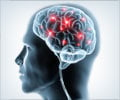
‘Neurologic symptoms are frequently reported even in patients with mild illness and for some, these neurologic symptoms may persist as part of long-haul COVID.
’
Tweet it Now
Specifically, 1,656 (10.2 percent) had encephalopathy (any diffuse disease of the brain that alters brain function or structure) at admission, 331 (2.0 percent) had a stroke, 243 (1.5 percent) had a seizure, and 73 (0.5 percent) had meningitis or encephalitis at admission or during hospitalization.
Neurological Associations of COVID-19
“Our findings show that encephalopathy at hospital admission is present in at least one in 10 patients with SARS-CoV-2 infection, while stroke, seizures and meningitis/encephalitis were much less common at admission or during hospitalization,” explains corresponding author Anna Cervantes-Arslanian, MD, associate professor of neurology, neurosurgery and medicine at BUSM.Additionally, they discovered all serious neurologic manifestations were associated with increased disease severity, greater need for ICU interventions, longer length of stay, ventilator use and higher mortality.
According to the researchers, patients with neurologic manifestations were more likely to have medical comorbidities. Most notably, a history of stroke or neurologic disorder increased the odds of developing a neurologic manifestation.
Moreover, they found neurologic manifestations differed by race. Black patients had an increased frequency of stroke, seizure and encephalopathy when compared with white patients. “Given the association of neurologic manifestations with poorer outcomes, further study is desperately needed to understand why these differences occur and what can be done to intervene,” added Cervantes, who also is a neurologist at Boston Medical Center.
These findings appear online in the journal Critical Care Explorations.
Advertisement
Source-Eurekalert














